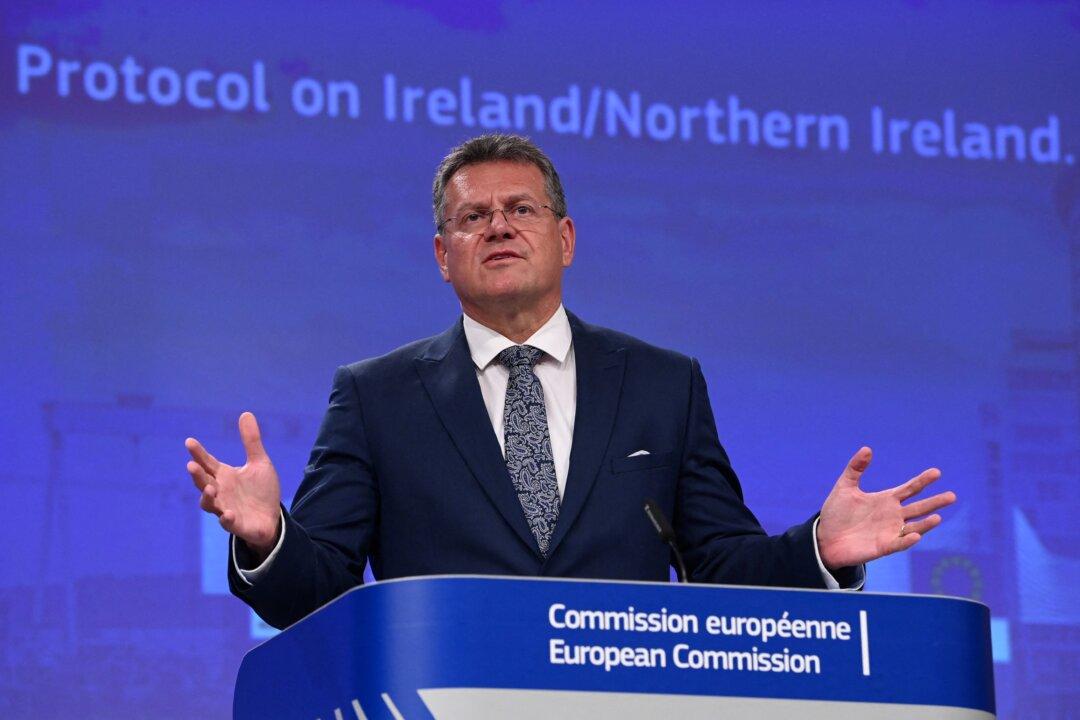The European Union has announced fresh legal action against the UK in response to the British government’s move to unilaterally scrap parts of an agreement governing Northern Ireland’s post-Brexit trading arrangements.
The Foreign Office said on June 13 that the UK’s move is intended to “fix parts of the Northern Ireland Protocol—making the changes necessary to restore stability and ensure the delicate balance of the Belfast (Good Friday) Agreement is protected.”





